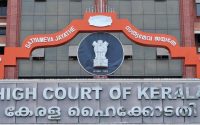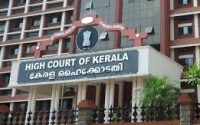$100 Website Offer
Get your personal website + domain for just $100.
Limited Time Offer!
Claim Your Website NowIn India’s Kerala, razing of high-rises leaves owners heartbroken.
Source – aljazeera.com
Kochi, India – A shocked Maya Prem Mohan watched on television as her building was imploded and came crashing down within seconds in a controlled demolition.
She is one of more than 300 apartment owners in Kochi, Kerala, whose properties were demolished on Saturday and Sunday on the orders of the Supreme Court for violating environmental norms.
Maya had sold her deceased husband’s property in Trivandrum, the state capital, to buy an apartment in H2O Holy Faith – one of two complexes overlooking Vembanad lake that were destroyed on Saturday. The other two were destroyed the following day.
“What did they gain by demolishing our house?” said the 60-year-old, who blamed the state chief minister for not saving her home.
Our fault is that we paid our hard-earned money and bought this property. – MAYA, FLAT OWNER
Millions of people from Kerala work in the Gulf countries, sending back billions of dollars in remittances each year, fuelling a construction boom.
But builders have been accused of ignoring safety and other regulations, often in collusion with local officials.
“Our fault is that we paid our hard-earned money and bought this property. How can anyone believe the property registration documents here anymore?” she remarked as she wiped tears of anger and frustration from her eyes.
About 340 apartments valued at close to $47m
Maya claims to have checked the property documents and ran it by lawyers before buying the apartment. “I loved that house,” she said claiming that she had no clue about any of the violations when she bought it.
The buildings demolished in the upscale Maradu municipality on Saturday and Sunday overlooked Vembanad Lake – the largest freshwater lake in India.
The shores of Vembanad Lake are also home to the largest Ramasar site (a wetland area designated to be of international importance) in India, with 2,114sq km (816sq miles) of mangroves.
The four building complexes comprised about 340 apartments, valued at close to $47m, and housed more than 300 families, including well-known film stars and directors, famous doctors, and many influential Kochi residents.
The demolitions were carried out on the orders of the top court for violating the Coastal Zone Regulation rules, which were framed to protect the ecologically sensitive areas.
Last year, apartment owners in Maradu went on a hunger strike, many of them saying they spent their life savings to buy the houses. But that did not stop the demolition.
Now they face a lengthy legal battle and bureaucratic hurdles to recover their money.
Compensation
The Supreme Court verdict was the result of a drawn-out legal battle between builders and the coastal zone regulatory authority. No one expected the court to come down so hard on the violation.
“Sadly, all the petitions by the residents, to hear us, were rejected by the Supreme Court,” said Shamsudeen Karunagappally, a lawyer and resident of H2O Apartments.
The top court has ordered an interim relief of $35,000 for each apartment owner, to be paid by the state government. It has also asked the state government to recover compensation from developers.
So far, most families have collected the initial amount. But most owners may not be able to recover full costs as properties are hugely undervalued in registration papers in order to avoid hefty taxes.
Building regulations in India are frequently flouted by developers and courts have often been called into action after the apartments have been built and occupied.
In 2014, the Kerala High Court had to intervene in one such construction by prominent builder, DLF. The court spared the demolition but imposed a hefty fine on the developer.
Waterfront residential properties have been the highlight of Kerala’s real estate. Blessed with a huge coastline and inland rivers and backwaters, the state has been cashing in on selling and developing this prime real estate during the economic boom of the 1990s and 2000s as expat money flowed in.
Unchecked development and housing projects
But unchecked development and housing projects have harmed the ecologically sensitive areas. Experts have blamed construction projects for the extensive flooding in 2018 that killed more than 400 people.
The flood disaster – the worst in a century – also triggered the Supreme Court verdict.
As part of government’s crackdown on illegal projects, more than 600 construction projects from Kochi and neighbouring districts been served notice for demolition.
“This is a figure from the preliminary study from the government. Now the government will look into these cases and decide on how to proceed with them,” said Sub Collector Kochi Snehil Kumar Singh, who asserted that not all would be demolished.
Last October, New Jersey-based Climate Central published its findings projecting that much of the ecologically sensitive area in the Kochi-Alappuzha belt would be underwater by 2050, another area of concern for builders and prospective buyers.
“I am now so scared. I tell my kids to not to invest in Kerala any more,” said a distraught Maya, whose two daughters live abroad.
“It’s our hard-earned money that they demolished so happily,” she lamented, saying that the government’s only concern was to protect its corrupt officials.
“This would have set an example if the government accommodated all the residents somewhere and punished the real wrongdoers of this violation – its own officials. Without that, how is this setting an example?” asked Maya.
Maradu Municipal Secretary Muhammad Arif Khan said the Crime Branch has registered a case in this matter and the investigations are ongoing.
The chief minister’s office declined to comment on the issue.



